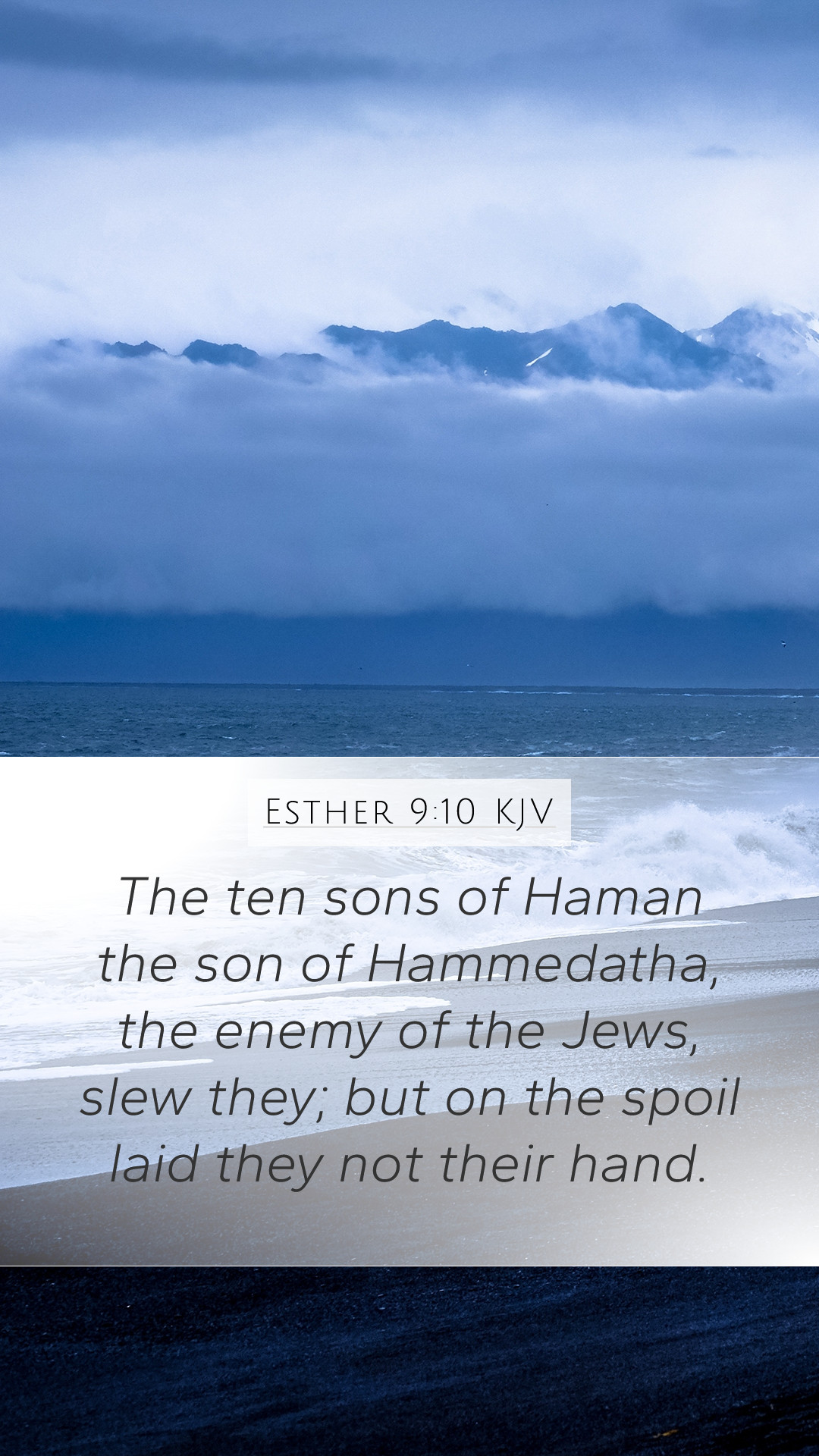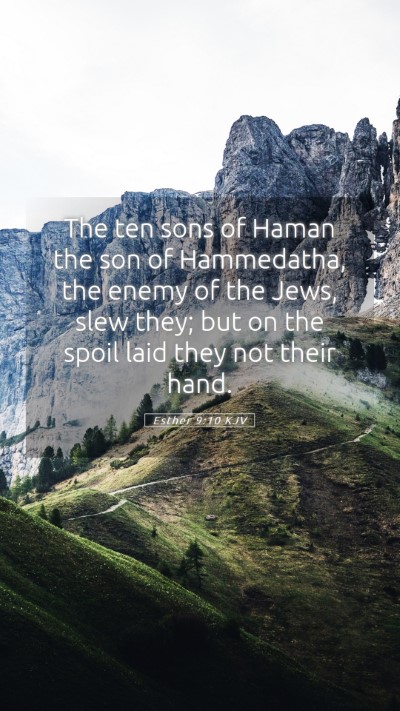Understanding Esther 9:10
Esther 9:10: "The ten sons of Haman the son of Hammedatha, the enemy of the Jews, killed they; but on the spoil laid they not their hand."
Bible Verse Meanings
Esther 9:10 details the outcome of the conflict between the Jews and their enemies. This verse represents the climax of a power struggle where the Jews emerge victorious over Haman's lineage, who had plotted against them. The phrase "but on the spoil laid they not their hand" indicates the Jews' desire to act righteously even in victory, showing restraint in their actions.
Bible Verse Interpretations
Historically, the events in Esther highlight the theme of divine justice. The Jews reject the spoils of their enemies, symbolizing their integrity and faithfulness to God's commands. This act of restraint could also reflect their understanding that their victory is not about material gain but fulfilling God's purpose.
Bible Verse Explanations
- Moral Integrity: The refusal to take the spoils signifies the Jews' commitment to moral values and justice.
- Vindication: This verse serves to vindicate the Jewish people, not just in their victory but in their adherence to divine principles even in triumph.
- Redemption: The defeat of Haman's sons can be seen as part of a larger narrative of redemption for the Jewish people.
Scripture Analysis
When analyzing Esther 9:10, we can view it through a lens that emphasizes the importance of restraint and moral fortitude in times of adversity. The Jews do not seek vengeance for its own sake, but rather a restoration of justice that acknowledges their sufferings without resorting to greed.
Biblical Exegesis
From a biblical exegesis perspective, the verse demonstrates several key theological themes:
- Divine Protection: The context of this scripture reflects God's providential care over His people.
- Historical Fulfillment: The events serve as a fulfillment of the promises made to Israel regarding their enemies.
- Community Cohesion: The collective action of the Jews highlights themes of unity in the face of external threats.
Bible Study Insights
For those engaging in Bible study groups or conducting online Bible study, Esther 9:10 offers rich material for discussion about ethical decision-making and community identity in the face of oppression. The verse's background and implications can spark inquiries into moral choices and how they align with biblical teachings.
Related Bible Cross References
- Exodus 17:14: God's command to blot out the memory of Amalek, the ancestor of Haman.
- Psalm 37:28: For the Lord loves the just and will not forsake his faithful ones.
- Esther 3:5-6: This passage introduces Haman's animosity toward Mordecai and sets up the conflict.
- Proverbs 11:21: The wicked will not go unpunished, but the offspring of the righteous will be delivered.
- Isaiah 54:17: No weapon formed against you shall prosper, resonating with the theme of divine protection.
Applications in Daily Life
Understanding Esther 9:10 can yield practical lessons for our own lives, such as:
- Resisting Temptation: The refusal to take spoils exemplifies the struggle against materialism.
- Acting with Integrity: Striving to make righteous choices in all circumstances, regardless of the outcome.
- Community Support: Standing together with others in faith, particularly in times of trial.
Conclusion
Esther 9:10 invites readers to consider the broader context of divine justice and moral integrity. Its insights can enhance our Bible study insights, encourage deeper Bible verse understanding, and illuminate significant aspects of biblical narratives. As we interpret such verses, we engage in an essential process of biblical exegesis that informs our faith and daily living.


